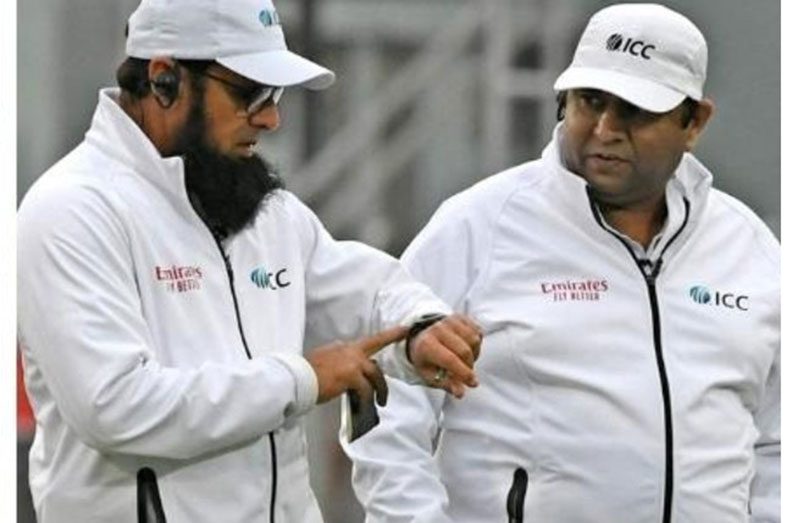TEST cricket made an emotional return to Lahore on Monday for the first time since a terror attack on the Sri Lankan team bus in 2009, with Pakistan and Australia to play the Benaud-Qadir series finale.
Pakistan’s second-biggest city and its Gaddafi Stadium have not hosted a Test since the attack 13 years ago that left six security personnel and two civilians dead.
The 22 players involved in Monday’s match are all playing a Test at the venue for the first time, but for on-field umpire Ahsan Raza, the match will carry extra significance.
Raza was critically injured on the morning of March 3, 2009, when a convoy of the Sri Lankan team bus and match officials’ van was attacked by about a dozen heavily armed militants.
The Sri Lankans’ bus and match officials’ van were hit by bullets and grenades in the attack. Eight were killed, many more wounded, including several Sri Lankan players.
Among the wounded was umpire Raza, a Lahore native, who was hit by two bullets that pierced his lungs and liver.
After emerging from a coma, it was nearly six months before he could walk again, but incredibly resumed his international umpiring career less than a year later in Sharjah.
“My wounds have healed but whenever I look at them I remember the gruesome incident,” Raza told AFP in 2019 on the 10th anniversary of the attack.
“Whenever someone mentions that incident I request him not to remind me of that tragedy.”
The Test in Lahore will not be Raza’s first trip back to the stadium – he stood in the first international back at the venue in 2015, when Zimbabwe visited, and again when Sri Lanka returned in 2017.
“I was very emotional that day,” Raza told AFP of Sri Lanka’s return..
“To their credit PCB (Pakistan Cricket Board) has taken gradual steps and I am 100 per cent confident that more foreign teams will come in the near future.”
Australian umpire Simon Taufel has recounted the terror attack, writing in his memoir that Raza had taken the seat in the van he would usually occupy.
“Had he (arrived) at the van earlier than me, my fate would have been different– fighting for my life with bullet injuries to my lungs and spleen,” Taufel wrote.
Australian Trevor Bayliss was head coach of Sri Lanka at the time had “the most amazing escape”, as detailed by his long-time assistant Paul Fabrace.
“He got off his seat and below the height of the window and put his backpack with his computer in it behind him as some sort of protection,” Fabrace recalled of Bayliss in a 2015 interview.
“Afterwards there were three bullet holes in the window where his head and chest would have been. It was a phenomenal, frightening escape.”
Fabrace, who was an assistant with Bayliss during his time as England head coach, was injured in the attack.
“I was cleaning my sunglasses, and the next thing, the bus jolted,” Farbrace, who saw a piece of shrapnel draw blood when it struck his arm, told a BBC Test Match Special podcast marking the 10-year anniversary of the attack.
“I just turned and looked over my shoulder, looked out the window – I could see this guy moving towards us with a gun, firing this gun
“Then I got thrown off my seat by a grenade going off on my side of the bus, which ended up with me needing two operations on my arm back in Colombo and spending 10 days in hospital.”
The incident drove international cricket away from Pakistan, forcing the home team to play their matches on neutral territory, mostly in the United Arab Emirates.
None of the current Pakistan players has played a Test at the Gaddafi ground – Azhar Ali will play his 94th Test at his home venue for the first time, and for the 27-year-old Babar Azam it will also be something of a homecoming.
Babar was a ball boy when Pakistan took on South Africa there in 2007 and he was born nearby.
“It’s a special occasion,” said the Test captain.
“When you play in front of your crowd and they support you, that feeling is so good, I can’t explain it.
“We’re so happy that cricket is back and we’re playing against such a big team here.” (AAP)



.jpg)








